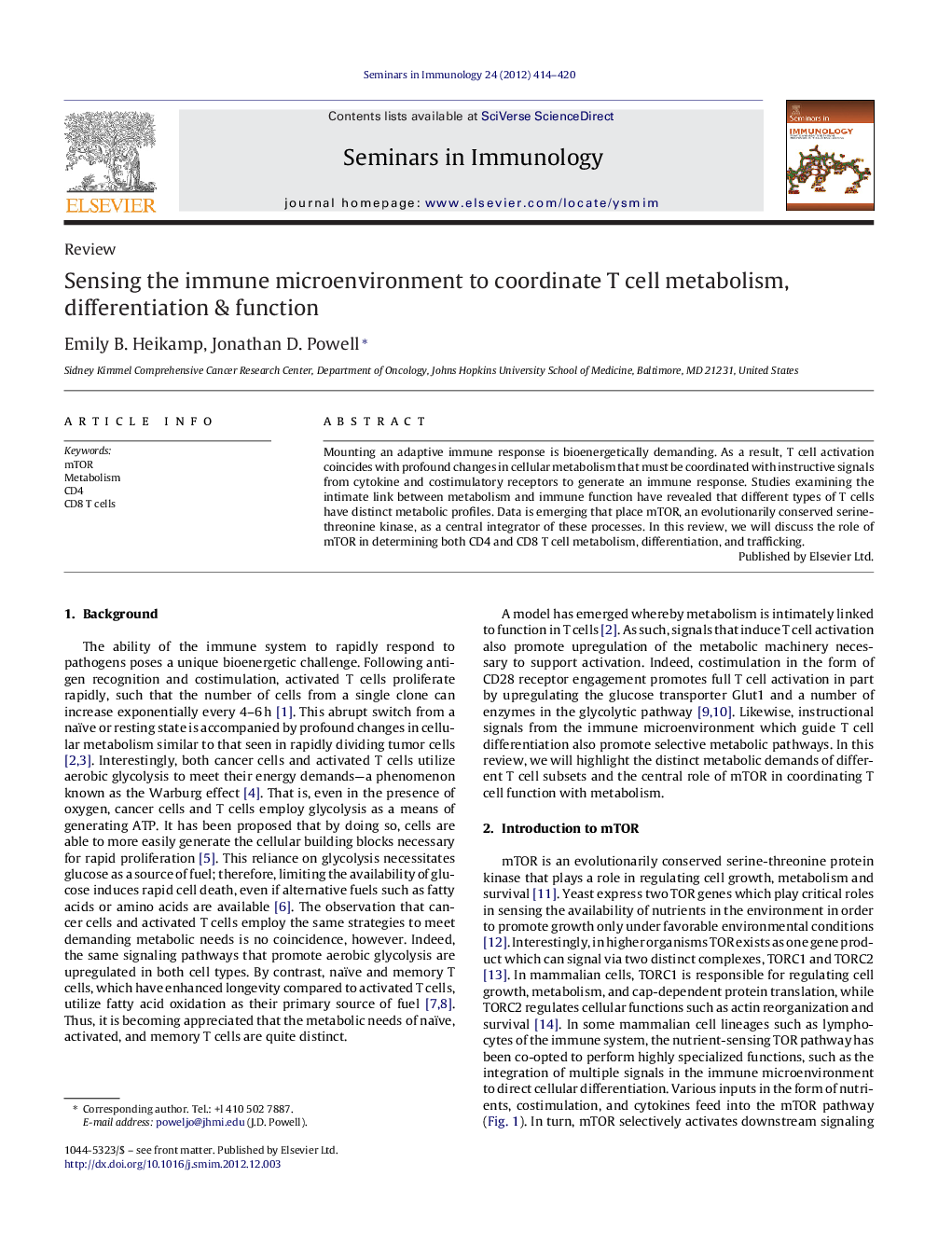| Article ID | Journal | Published Year | Pages | File Type |
|---|---|---|---|---|
| 3391454 | Seminars in Immunology | 2012 | 7 Pages |
Mounting an adaptive immune response is bioenergetically demanding. As a result, T cell activation coincides with profound changes in cellular metabolism that must be coordinated with instructive signals from cytokine and costimulatory receptors to generate an immune response. Studies examining the intimate link between metabolism and immune function have revealed that different types of T cells have distinct metabolic profiles. Data is emerging that place mTOR, an evolutionarily conserved serine-threonine kinase, as a central integrator of these processes. In this review, we will discuss the role of mTOR in determining both CD4 and CD8 T cell metabolism, differentiation, and trafficking.
► mTOR directs CD4 Th1, Th2, Th17 and regulatory T cell differentiation. ► mTOR directs CD8 effector vs memory T cell differentiation. ► mTOR contributes to the metabolic switch from oxidative phosphorylation in naïve T cells to aerobic glycolysis and glutaminolysis in activated T cells. ► mTOR integrates signals to coordinate T cell metabolism, differentiation, and function.
